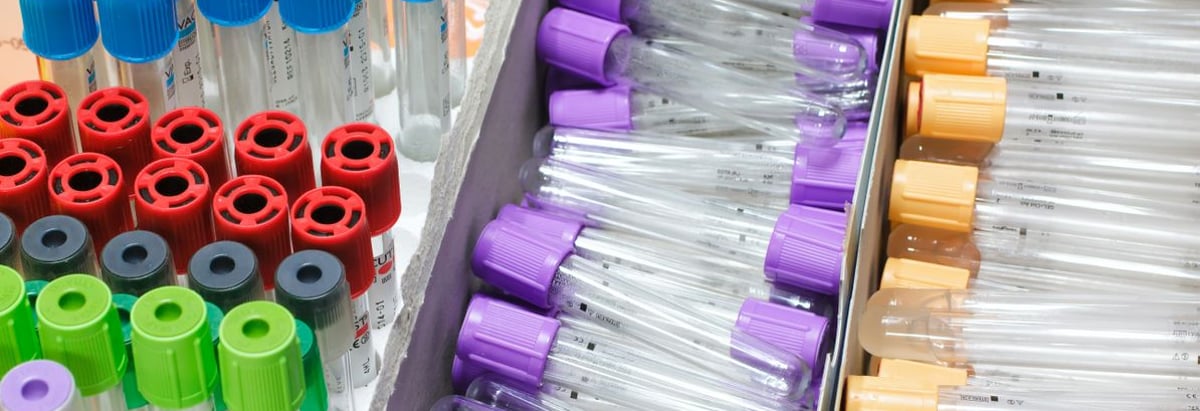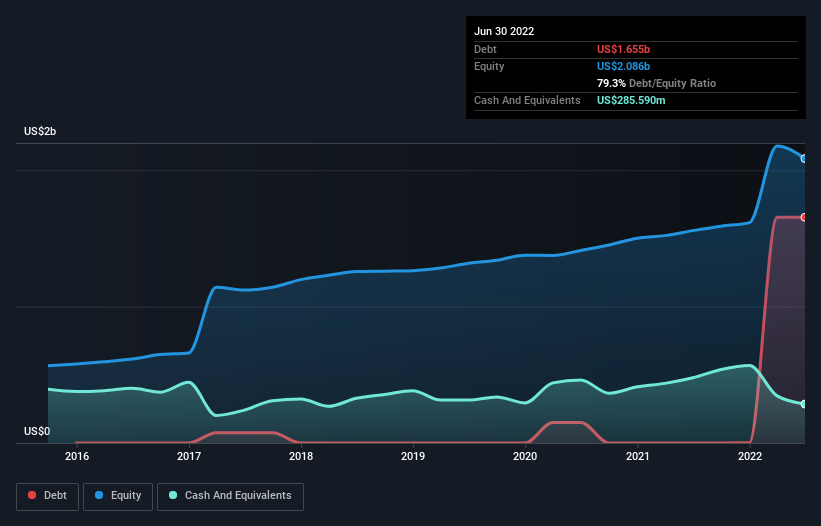- United States
- /
- Medical Equipment
- /
- NasdaqGS:ICUI
ICU Medical (NASDAQ:ICUI) Takes On Some Risk With Its Use Of Debt

Howard Marks put it nicely when he said that, rather than worrying about share price volatility, 'The possibility of permanent loss is the risk I worry about... and every practical investor I know worries about.' So it seems the smart money knows that debt - which is usually involved in bankruptcies - is a very important factor, when you assess how risky a company is. We note that ICU Medical, Inc. (NASDAQ:ICUI) does have debt on its balance sheet. But is this debt a concern to shareholders?
What Risk Does Debt Bring?
Debt assists a business until the business has trouble paying it off, either with new capital or with free cash flow. In the worst case scenario, a company can go bankrupt if it cannot pay its creditors. However, a more common (but still painful) scenario is that it has to raise new equity capital at a low price, thus permanently diluting shareholders. Of course, plenty of companies use debt to fund growth, without any negative consequences. When we think about a company's use of debt, we first look at cash and debt together.
Check out our latest analysis for ICU Medical
How Much Debt Does ICU Medical Carry?
As you can see below, at the end of June 2022, ICU Medical had US$1.66b of debt, up from none a year ago. Click the image for more detail. However, because it has a cash reserve of US$285.6m, its net debt is less, at about US$1.37b.

How Healthy Is ICU Medical's Balance Sheet?
The latest balance sheet data shows that ICU Medical had liabilities of US$486.0m due within a year, and liabilities of US$2.02b falling due after that. Offsetting these obligations, it had cash of US$285.6m as well as receivables valued at US$219.6m due within 12 months. So its liabilities total US$2.00b more than the combination of its cash and short-term receivables.
While this might seem like a lot, it is not so bad since ICU Medical has a market capitalization of US$3.73b, and so it could probably strengthen its balance sheet by raising capital if it needed to. But it's clear that we should definitely closely examine whether it can manage its debt without dilution.
We measure a company's debt load relative to its earnings power by looking at its net debt divided by its earnings before interest, tax, depreciation, and amortization (EBITDA) and by calculating how easily its earnings before interest and tax (EBIT) cover its interest expense (interest cover). Thus we consider debt relative to earnings both with and without depreciation and amortization expenses.
ICU Medical shareholders face the double whammy of a high net debt to EBITDA ratio (6.3), and fairly weak interest coverage, since EBIT is just 1.9 times the interest expense. This means we'd consider it to have a heavy debt load. Worse, ICU Medical's EBIT was down 62% over the last year. If earnings keep going like that over the long term, it has a snowball's chance in hell of paying off that debt. When analysing debt levels, the balance sheet is the obvious place to start. But ultimately the future profitability of the business will decide if ICU Medical can strengthen its balance sheet over time. So if you're focused on the future you can check out this free report showing analyst profit forecasts.
Finally, a company can only pay off debt with cold hard cash, not accounting profits. So it's worth checking how much of that EBIT is backed by free cash flow. During the last three years, ICU Medical produced sturdy free cash flow equating to 70% of its EBIT, about what we'd expect. This free cash flow puts the company in a good position to pay down debt, when appropriate.
Our View
On the face of it, ICU Medical's net debt to EBITDA left us tentative about the stock, and its EBIT growth rate was no more enticing than the one empty restaurant on the busiest night of the year. But at least it's pretty decent at converting EBIT to free cash flow; that's encouraging. We should also note that Medical Equipment industry companies like ICU Medical commonly do use debt without problems. Looking at the balance sheet and taking into account all these factors, we do believe that debt is making ICU Medical stock a bit risky. That's not necessarily a bad thing, but we'd generally feel more comfortable with less leverage. There's no doubt that we learn most about debt from the balance sheet. However, not all investment risk resides within the balance sheet - far from it. To that end, you should learn about the 4 warning signs we've spotted with ICU Medical (including 1 which doesn't sit too well with us) .
At the end of the day, it's often better to focus on companies that are free from net debt. You can access our special list of such companies (all with a track record of profit growth). It's free.
New: AI Stock Screener & Alerts
Our new AI Stock Screener scans the market every day to uncover opportunities.
• Dividend Powerhouses (3%+ Yield)
• Undervalued Small Caps with Insider Buying
• High growth Tech and AI Companies
Or build your own from over 50 metrics.
Have feedback on this article? Concerned about the content? Get in touch with us directly. Alternatively, email editorial-team (at) simplywallst.com.
This article by Simply Wall St is general in nature. We provide commentary based on historical data and analyst forecasts only using an unbiased methodology and our articles are not intended to be financial advice. It does not constitute a recommendation to buy or sell any stock, and does not take account of your objectives, or your financial situation. We aim to bring you long-term focused analysis driven by fundamental data. Note that our analysis may not factor in the latest price-sensitive company announcements or qualitative material. Simply Wall St has no position in any stocks mentioned.
About NasdaqGS:ICUI
ICU Medical
Develops, manufactures, and sells medical devices used in infusion therapy, vascular access, and vital care applications worldwide.
Fair value with moderate growth potential.
Similar Companies
Market Insights
Community Narratives




